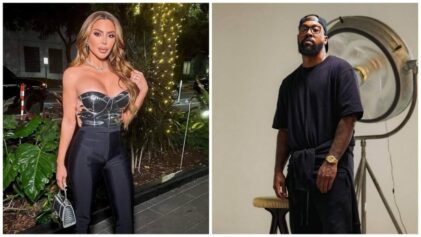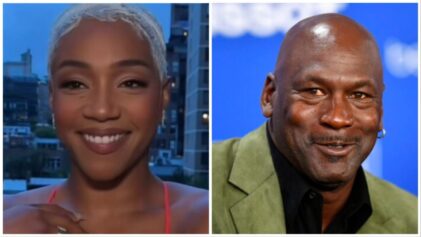Michael Jordan has been where Derrick Rose is now – injured and eager to get healthy to resume his career – and he has some advice for Chicago Bulls owner Jerry Reinsdorf, who ran the team when Jordan broke his foot in his second year in the NBA.
“I have a unique perspective,” Jordan told ESPNChicago.com. “I’ve been a player, I’ve been in that scenario, and I would definitely consult with the player and I would never take his opinion, desire or feelings for granted. You have to factor that in.”
When Jordan broke his foot after his rookie year in 1985, he missed 64 games. He played the last 15, but his minutes were restricted by the Bulls management. The restrictions were lifted in the playoffs, and Jordan erupted for 63 points in Boston Garden against the Celtics – still the highest scoring game in playoff history.
Reinsdorf has a different perspective from Jordan.
“I’m not going to let him back until the doctors tell me that it’s absolutely safe for him to come back,” Reinsdorf said on an ESPN show “I made that mistake with Michael Jordan years ago where I think we let him come back too soon. It worked out OK, but it might not have.
“This time I’m not going to make that mistake. Until the doctors say he’s 100 percent and they put their reputations on the line, he’s not coming back.”
Rose, who had surgery May 12 to repair a torn ACL in his left knee and is expected to take eight to 12 months to recover.Jordan’s injury, a broken left foot, was less serious than a torn ACL
Reinsdorf told ESPNChicago.com in 2011 that his motivation to keep Jordan sidelined was fear the injury could ultimately end his career.
“I was scared to death he was going to be hurt again, and that would be the last we would ever see of Michael Jordan,” Reinsdorf said.
Jordan remembers it well and said he was annoyed with Reinsdorf and then-general manager Jerry Krause for not allowing him back as soon as he wanted, then limiting his participation.
“The thing was, at the time, we were going through a rebuilding process, and I was practicing two hours a day and that was the thing that bothered me more than anything,” Jordan said. “If I can go through two-hour practices, as intense as I practice, then when the game came, they gave me a seven-minute window (in each half) to play.
“That’s when I felt more frustrated than anything. I felt more than anything they were positioning themselves for the draft and I didn’t feel good being part of that. I felt I was an all-out player who didn’t half-ass anything, and they wanted to move up (in the draft). I was a player, I wanted to play.
“(Reinsdorf) obviously had a different perspective of things. Being where I am now (as owner of the Charlotte Bobcats), I understand it a little bit differently, but if a player wants to play and is doing all the necessary things . . . It wasn’t just me saying I was good enough to play. I went through the process. And Doc Hefferon, who I had the highest regard for, said I was OK.”
In the end, Reinsdorf acquiesced in time for the playoffs. But for Jordan, even some 27 years later, it will never be soon enough.
“Granted, I know the business and you have to be somewhat conservative for the long-term, but you still have to take into consideration the player, how he responds to pain, what kind of guy he is,” Jordan said. “That’s the difference between Jerry and myself. I’ve been there, done that, experienced that.”


